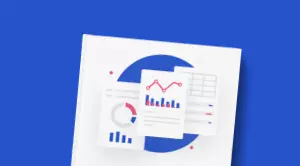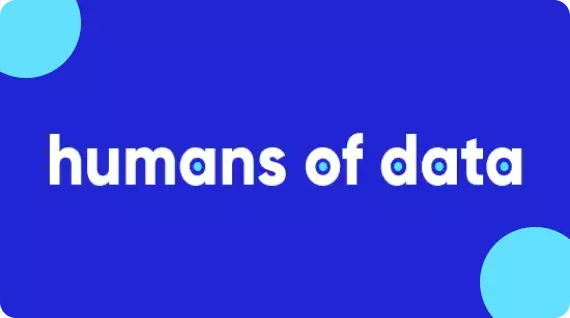Data Steward vs Data Owner: 11 Key Differences & Relationship!
Share this article
Data stewards are responsible for data quality, governance, and ensuring compliance across the organization, while data owners have specific domain-related responsibilities, including data security, access control, and decision-making within their assigned data areas.
Data stewards have a broader organizational scope, whereas data owners focus on their specific data domains.
See How Atlan Simplifies Data Governance – Start Product Tour
In this article, we will understand:
- Who is a data steward and data owner?
- 11 Differences between data steward vs data owner
- Their key responsibilities
Ready? Let’s dive in!
Table of contents #
- Who is a data steward?
- Who is a data owner?
- Data steward vs data owner
- Key responsibilities
- Collaborative relationship between data stewards and data owners
- Summing up
- Related reads
Who is a data steward? #
A data steward is essentially a guardian of data within an organization. They are responsible for the day-to-day management and governance of data. This includes ensuring that data is accurate, consistent, and reliable.
Data stewards work diligently to prevent data inconsistencies, errors, and duplications. They act as custodians of data quality and are often involved in data profiling and cleansing activities.
Data stewards also play a significant role in data documentation. They create and maintain data dictionaries, metadata, and data lineage information. This documentation provides transparency and aids in understanding the context and history of data, which is essential for making informed decisions.
Who is a data owner? #
The data owner, on the other hand, is like the CEO of a specific dataset or a domain of data. They hold a distinct set of responsibilities that revolve around the data within their domain. One of their primary responsibilities is data security.
Data owners are tasked with implementing security measures to protect the data they own. This includes setting up firewalls, encryption, access controls, and other security protocols to maintain confidentiality of the data.
Another critical function of data owners is data decision-making. They are in charge of deciding how data is used, shared, and repurposed within their domain. For example, if a marketing department owns customer data, they may decide how that data is used for marketing campaigns and promotions.
Data steward vs data owner: 11 Key differences #
In the realm of data management, it’s crucial to have clearly defined roles to ensure the quality, security, and strategic use of data assets.
Two such roles are the data steward and the data owner. While both play integral parts, they have distinct responsibilities and authority within an organization.
Here, we’ll delve into the detailed differences between a data steward and a data owner:
| Aspect | Data steward | Data owner |
|---|---|---|
| Role definition | Data stewards are responsible for data management, data quality, and governance. They ensure data is accurate, consistent, and compliant. | Data owners are accountable for specific datasets or data domains. They have authority over data access, usage, and decision-making within their domain. |
| Primary Responsibilities | Data quality and consistency, Data governance, Data classification, Data documentation, Data compliance with regulations. | Data security, Access control, Data lifecycle management, Data decision-making. |
| Scope | Typically work across various data domains and may have a broader view of data management. | Focus on specific data sets or domains within the organization and may not have visibility into data management practices outside of their domain. |
| Execution vs oversight | Data stewards are involved in the execution of data management tasks, such as data cleansing and governance. | Data owners provide oversight and make strategic decisions about data but may not be directly involved in day-to-day data management tasks. |
| Decision-making authority | Data stewards are responsible for maintaining data quality and compliance but do not have the authority to make final decisions about data use or access. | Data owners have the authority to make decisions about data access, usage, and retention within their domain. They control who can access the data and for what purpose. |
| Data security | While data stewards may play a role in data security, it is not their primary responsibility. | Data owners are directly responsible for implementing security measures to protect the data they own. |
| Data classification | Data stewards are responsible for categorizing data based on sensitivity, value, and purpose, which aids in applying appropriate controls. | Data owners may provide input on data classification within their domain, but the final decision is typically within their purview. |
| Data lifecycle management | Data stewards may provide input on data retention and disposal policies, but final decisions are typically made by data owners based on business needs and compliance requirements. | Data owners define data retention and disposal policies within their domain, ensuring data is retained appropriately and securely disposed of when necessary. |
| Data documentation | Data stewards create and maintain data dictionaries, metadata, and data lineage information to provide transparency and context to data. | Data owners may rely on data documentation provided by data stewards to understand the data’s context and history but are not responsible for its creation and maintenance. |
| Data compliance | Data stewards ensure that data is compliant with legal and regulatory requirements but may not have the final say in compliance matters. | Data owners have the responsibility to ensure data within their domain complies with relevant regulations and standards. They may define policies and procedures for compliance. |
| Collaboration | Effective data management requires collaboration between data stewards and data owners to maintain data quality and security while making strategic data-related decisions. | Collaboration ensures that data is both high-quality and used strategically. Data stewards provide insights and recommendations, and data owners make informed decisions based on their authority. |
These clear distinctions between data stewards and data owners are essential for maintaining data integrity, security, and compliance while ensuring that data serves its intended strategic purpose. Effective collaboration between these roles is the key to successful data management within an organization.
Data steward vs. data owner: What are their key responsibilities? #
#1 Responsibilities of a data steward #
Data stewards are responsible for various critical tasks related to data management:
- Data quality assurance
- Data governance
- Data classification
- Data documentation
- Data compliance
- Data quality monitoring
- Collaboration
Now let’s understand these responsibilities in detail:
1. Data quality assurance #
- Data stewards are responsible for ensuring the quality of data. This includes identifying and rectifying data errors, inconsistencies, and redundancies to maintain data accuracy and reliability.
- They oversee data cleansing, validation, and standardization processes, working to eliminate data quality issues that could impact decision-making and operations.
2. Data governance #
- Data stewards play a pivotal role in establishing and enforcing data governance policies and procedures.
- They define how data should be collected, stored, accessed, and used to ensure that it aligns with the organization’s objectives and complies with relevant laws and regulations.
3. Data classification #
- Data stewards categorize data based on its sensitivity, value, and purpose.
- They apply appropriate controls and security measures based on the data’s classification to safeguard it and ensure it’s used appropriately.
4. Data documentation #
- Data stewards create and maintain data documentation, which includes data dictionaries, metadata, and data lineage information.
- This documentation provides transparency and helps users understand the context, meaning, and history of data, which is crucial for decision-making and data governance.
5. Data compliance #
- Data stewards ensure that data within the organization is compliant with legal and regulatory requirements. They are responsible for understanding and implementing data-related compliance measures, such as GDPR or industry-specific regulations.
- They monitor changes in regulations and ensure the organization’s data practices remain compliant.
6. Data quality monitoring #
- Data stewards continuously monitor data quality and the implementation of data governance policies.
- They use data quality metrics and reporting tools to identify issues and areas for improvement, making recommendations for enhancements.
7. Collaboration #
- Collaboration with various departments, including IT, data analysts, and business units, is vital for data stewards.
- They work closely with data owners to ensure data assets are managed effectively, efficiently, and in alignment with business goals.
By upholding data quality, governance, and compliance while fostering collaboration, data stewards play a pivotal role in driving informed decision-making and operational excellence, ultimately contributing to the organization’s overall success and competitiveness in today’s data-driven world.
#2 Responsibilities of a data owner #
Data owners, in contrast to data stewards, have a distinct set of responsibilities related to their specific data domains:
- Data security
- Access control
- Data lifecycle management
- Data decision-making
- Data compliance within domain
- Risk management
- Collaboration
Now let’s understand these responsibilities in detail:
1. Data security #
- Data owners are primarily responsible for data security within their specific domains.
- They implement security measures to protect data from breaches, unauthorized access, and data leaks. This may include encryption, access controls, and firewall configurations.
2. Access control #
- Data owners determine who can access the data within their domain, what level of access is granted, and under what circumstances.
- They enforce access control policies, ensuring that sensitive or confidential data is accessed only by authorized personnel.
3. Data lifecycle management #
- Data owners define data retention and disposal policies based on business needs, compliance requirements, and the data’s usefulness.
- They ensure that data is retained for the appropriate duration and securely disposed of when it reaches the end of its lifecycle.
4. Data decision-making #
- Data owners have the authority to make decisions about data usage, sharing, and repurposing within their domain.
- They decide how data is used to achieve their department’s goals, such as for reporting, analytics, or other purposes.
5. Data compliance within a domain #
- Data owners ensure that data within their domain complies with relevant regulations, standards, and company policies.
- They may define specific policies and procedures for data compliance within their domain, collaborating with data stewards and legal departments as needed.
6. Risk management #
- Data owners assess and manage the risks associated with the data within their domain.
- They identify vulnerabilities, implement risk mitigation strategies, and ensure that sensitive data is adequately protected from threats.
7. Collaboration #
- Collaboration with data stewards, IT, and other departments is essential.
- Data owners work closely with data stewards to understand data quality and governance needs, ensuring that data within their domain aligns with the organization’s overall data management strategy.
In short, data owners have distinct responsibilities focused on data security, access control, data lifecycle management, decision-making, compliance, risk management, and collaboration, all essential for effective data governance within their specific domains.
Collaborative relationship between data stewards and data owners #
An effective data management ecosystem thrives on collaboration between data stewards and data owners. This partnership ensures that data is both high-quality and strategically used.
Data stewards can provide valuable insights and recommendations to data owners based on their deep understanding of data quality and governance. In turn, data owners can make informed decisions about data access, sharing, and utilization.
Regular communication and collaboration between these roles are essential for successful data management. For example, data stewards may identify data quality issues that need to be addressed and provide this information to data owners.
Data owners, in response, can make decisions about data access and usage policies to mitigate these issues. This collaboration creates a symbiotic relationship that enhances the overall quality and value of an organization’s data assets.
Summing up #
In a nutshell, data stewards and data owners are pivotal roles in the realm of data management. Their distinct yet complementary responsibilities ensure that data is of high quality, secure, and used strategically.
Understanding these roles and promoting effective data governance is vital for harnessing the full potential of an organization’s data assets.
Data steward vs data owner: Related reads #
- What is Data Stewardship?
- Data Governance vs Data Stewardship: Exploring the Differences, Risks & Why They’re Critical
- AI Data Steward: How Can It Empower You to Change Gears from Tactical to Strategic
- 6 Strategic Steps to Enable Data Stewards in 2023!
- What is Data Governance? Its Importance, Principles & How to Get Started?
- Who is Responsible for a Data Catalog? Demystifying Roles and Responsibilities
- Data Governance Basics: Everything You Need to Know in 2023
- Data Governance Roles and Responsibilities: A Complete Round Up
Share this article









